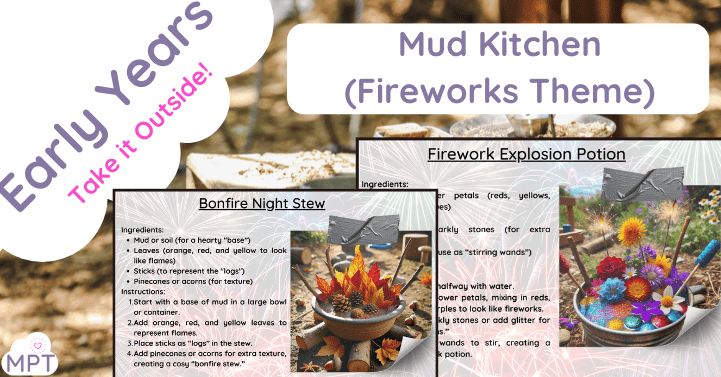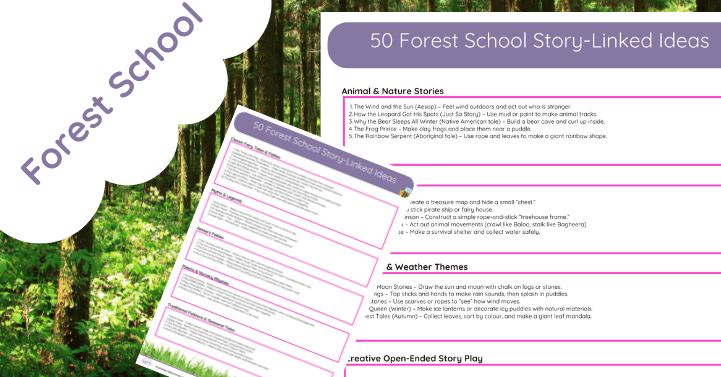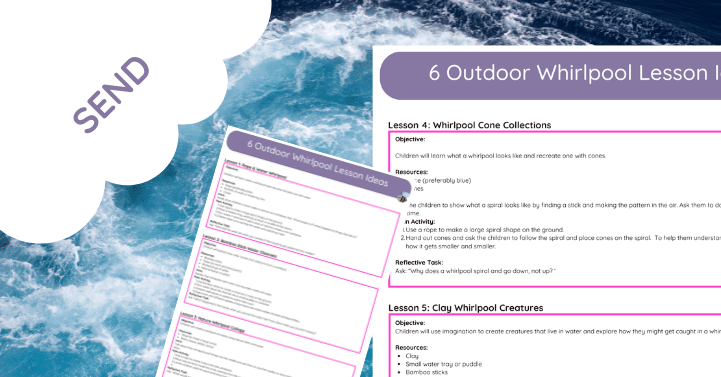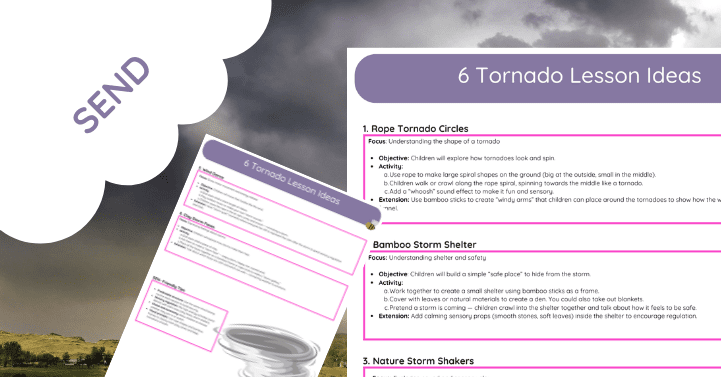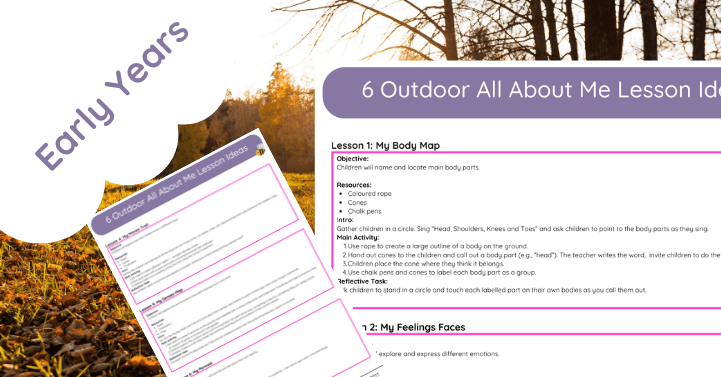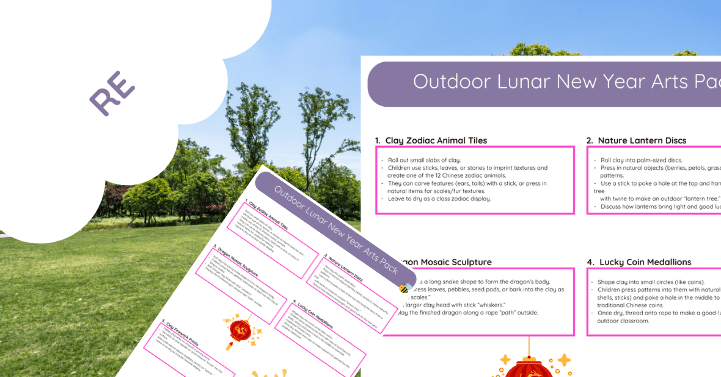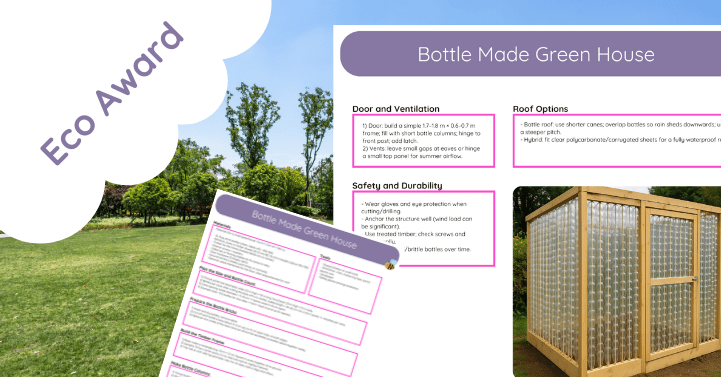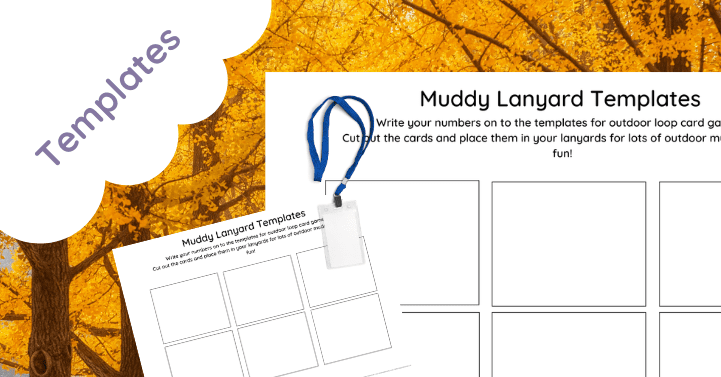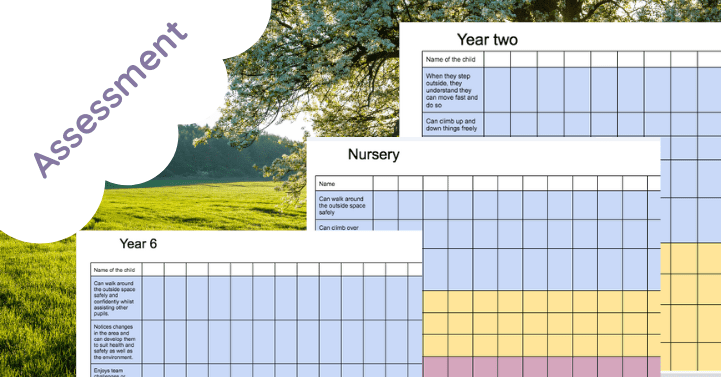Ignite creativity and sensory exploration with our Mud Kitchen Recipes: Bonfire Night Theme! This unique collection of nature-inspired recipes brings the excitement of Bonfire Night to your outdoor mud kitchen, allowing young learners to engage in imaginative play and hands-on learning. Each recipe is designed to capture the warmth, sparkle, and colours of Bonfire Nights, with activities that encourage creativity, fine motor skills, and collaborative play.
What’s Included:
- Sparkler Soup: A delightful recipe with twigs, dried leaves, and pebbles to mimic the sparkle and crackle of sparklers.
- Rocket Blast Salad: Colorful flower petals, grass clippings, and twigs combine to create a “rocket-ready” salad with colour and excitement.
- Catherine Wheel Whirl: Children create their own “wheel” with mud, round leaves, and dandelion fluff, bringing a classic firework to life.
- Firework Explosion Potion: With coloured petals, sparkly stones, and sticks as stirring wands, this potion simulates the magic of fireworks.
- Bonfire Night Stew: A cosy mud-based stew with orange, red, and yellow leaves as “flames,” sticks as “logs,” and pinecones for texture, capturing the essence of a bonfire.
Why Choose This Pack?
Our Bonfire Night Mud Kitchen Recipes provide an engaging, nature-based play experience perfect for celebrating Bonfire Night with young children. These recipes encourage sensory exploration, outdoor creativity, and themed play, all while helping children connect with seasonal changes and traditional celebrations in a hands-on way. Ideal for early years educators or families, this themed pack will make your mud kitchen a place of excitement, exploration, and discovery this Bonfire Night!
The Importance of Mud Kitchens in Early Years Education
Mud kitchens have become a staple in early years settings, and for good reason. These simple, nature-inspired play spaces are much more than messy fun—they offer a wealth of developmental benefits that support children’s physical, social, emotional, and cognitive growth. Using natural materials, sensory experiences, and imaginative play, mud kitchens engage children in hands-on learning that fosters curiosity, creativity, and connection with the world around them.
Here’s a closer look at why mud kitchens are so valuable in early years education, along with some practical tips for making the most of this versatile learning environment.
1. Sensory Development and Exploration
Mud kitchens offer a unique sensory experience, allowing children to explore different textures, temperatures, and consistencies through natural materials like mud, sand, water, leaves, and sticks. Sensory play is essential for early brain development, helping children process information and strengthen their sensory awareness.
The Sensory Trust highlights that sensory play helps children develop cognitive and language skills as they describe what they feel, see, and hear. Additionally, sensory activities in a mud kitchen can support children with sensory processing needs, offering them a grounding, calming experience.
2. Encouraging Imagination and Creativity
Mud kitchens are a blank canvas for children’s imagination. They allow children to take on different roles—such as chefs, bakers, or explorers—and create their own “recipes” and stories, which fosters creative expression.
The Imagination Tree shares ideas on using mud kitchens to encourage open-ended play and creative thinking. By giving children the freedom to make their creations, they learn to express their ideas, solve problems, and invent new ways to interact with their surroundings.
3. Developing Fine and Gross Motor Skills
From scooping and stirring to pouring and mixing, mud kitchen play involves a range of physical movements that help strengthen fine and gross motor skills. Handling different-sized utensils, containers, and natural materials builds hand strength and coordination, essential for writing and other tasks.
According to Early Years Alliance, mud kitchens are a fantastic way for children to practice fine motor skills in a playful setting, helping to prepare them for academic skills like writing and cutting.
4. Fostering Social Skills and Cooperation
Mud kitchens are often collaborative spaces where children work together to make “meals,” share tools, and communicate their ideas. This social interaction helps children practice cooperation, patience, and sharing, which are important social-emotional skills.
Family Lives explains that playing together in a mud kitchen encourages children to navigate relationships, communicate their needs, and resolve conflicts in a natural and supportive setting.
5. Supporting Language and Communication
Mud kitchens allow children to expand their vocabulary as they describe their making, talk about textures and materials, and share their imaginative stories with peers or adults. Language-rich play settings like mud kitchens help develop communication skills, boosting vocabulary and confidence in expressing ideas.
Literacy Trust emphasizes the importance of language-rich environments in the early years, noting that playful spaces like mud kitchens support language development and early literacy skills.
6. Encouraging Risk-Taking and Problem-Solving
Mud kitchens are safe places for children to experiment, test ideas, and take risks, such as deciding how to balance materials in a “recipe” or exploring different ways to mix water with soil. This risk-taking and experimentation build confidence and resilience, helping children learn to adapt and find solutions to problems.
Child Mind Institute highlights that controlled risk-taking in play environments helps children build confidence and flexibility in thinking, supporting cognitive development and emotional resilience.
7. Connecting Children with Nature
Mud kitchens create an outdoor learning space where children can experience nature’s sights, sounds, and textures up close. This connection to nature fosters environmental awareness, respect for the outdoors, and a sense of calm and well-being.
National Trust explains that spending time in nature benefits children’s physical and mental health, helping them to feel grounded and at peace in a natural setting.
8. Promoting Environmental Awareness
Through play with natural materials, children become more aware of the natural world and understand how different elements work together. This promotes an early understanding of ecosystems, cycles, and respect for the environment.
Woodland Trust provides resources on outdoor learning, emphasizing how mud kitchens and nature-based play inspire children to care for the world around them.
9. Supporting Emotional Regulation
The sensory and repetitive nature of mud kitchen play can be calming and grounding for children. Many children find comfort in the tactile experiences of working with mud and water, which can help them self-regulate emotions and relieve stress.
MindUP suggests that sensory play, especially outdoors, can provide children a safe way to explore and process their emotions, promoting mindfulness and emotional regulation.
10. Building Early Science and Math Skills
Mud kitchens allow children to explore basic science and math concepts hands-on. Children create “recipes” by measuring, pouring, counting, and observing how materials change when mixed.
STEM Learning notes that early exposure to math and science in play settings, like mud kitchens, helps build foundational skills that support curiosity and future learning in STEM subjects.
11. Creating Opportunities for Storytelling
Mud kitchens offer children endless storytelling possibilities. They can pretend to be chefs, witches, or explorers, weaving imaginative narratives that develop their understanding of plot, character, and sequence.
BookTrust highlights that storytelling is a powerful way for children to make sense of the world, build language skills, and gain confidence in their voices.
12. Developing Independence and Decision-Making
Mud kitchens allow children to choose from ingredients to deciding how they want to play. This independence fosters self-confidence and decision-making skills as children learn to trust in their own ideas.
NDNA (National Day Nurseries Association) supports independent learning through play, noting that allowing children to make choices helps build self-esteem and confidence.
13. Supporting Physical Health and Well-being
Outdoor play in a mud kitchen gets children moving, helping them build physical health and well-being through active, engaging play. Spending time outdoors has been shown to reduce stress, improve mood, and support physical development.
NHS Change4Life promotes outdoor play as an important part of healthy development, encouraging movement and active exploration for young children.
14. Providing an Inclusive Learning Environment
Mud kitchens are accessible to all children, regardless of their abilities or learning needs. The open-ended nature of mud kitchen play allows children to participate in a way that suits their strengths, supporting inclusive learning.
Scope advocates for adaptable and accessible play environments, ensuring every child has a chance to engage and explore.
15. Offering a Rich Space for Educator Observation and Support
Mud kitchens provide educators with a natural setting to observe children’s interactions, interests, and development. This setting allows teachers to support children’s learning in real time, offering guidance, vocabulary, or prompts as needed.
Early Childhood Ireland highlights the value of outdoor learning environments for early years educators, providing insight into children’s social, emotional, and cognitive growth.


